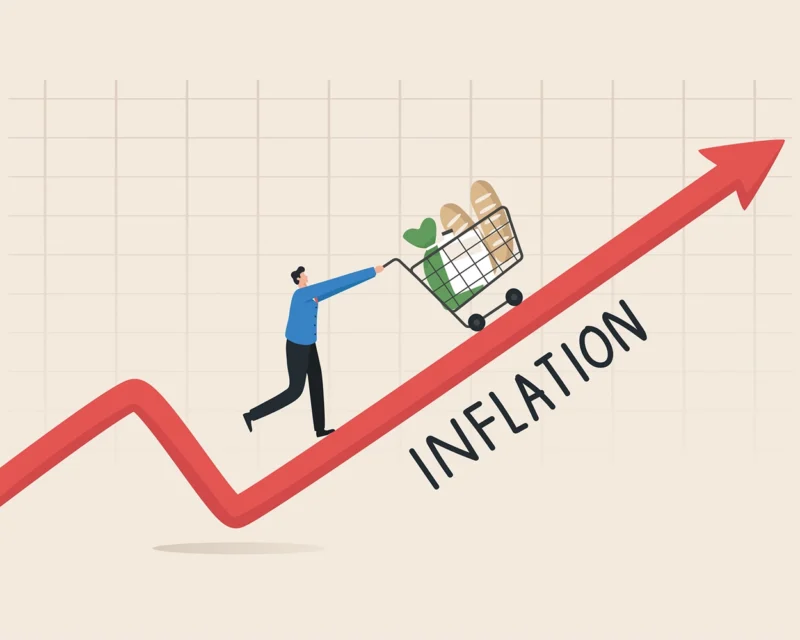Inflation on the Rise: A Warning Amidst Increasing Military Spending
In a nation beset by rising inflation and perpetual military engagements abroad, the time has come for a sobering reassessment of priorities. As the latest data reveals a concerning uptick in US inflation, paralleled by the staggering costs of sustained warfare in regions like Ukraine and the Middle East, the imperative for change grows ever more urgent.
The Federal Reserve’s recent report on inflation paints a worrisome picture, with the Personal Consumption Expenditures (PCE) price index climbing to 2.5% for the 12 months ending in February. While this figure aligns with consensus estimates, the underlying factors driving this increase demand closer scrutiny.
Chief among these factors is the 2.3% surge in energy prices witnessed last month, a stark reminder of the volatility inherent in global markets. Yet, amid discussions of inflationary pressures, a more profound crisis looms—one rooted not in market fluctuations, but in the unchecked escalation of military spending.
For too long, the United States has been embroiled in costly conflicts abroad, draining its resources and imperiling its economic stability. The exorbitant sums poured into wars in Ukraine and the Middle East represent a fiscal black hole, diverting funds away from critical domestic needs and exacerbating budgetary deficits.
Moreover, the toll exacted by these protracted conflicts extends far beyond the balance sheet. The human cost of war, both for American servicemembers and the populations caught in the crossfire, is immeasurable. As the prospect of withdrawal looms, the question arises: at what point do the costs outweigh the benefits?
The notion of America fleeing these hotspots, both physically and economically, may evoke discomfort and disillusionment. However, it is imperative to confront the stark reality: the continuation of these wars serves neither national interests nor global stability. Instead, it perpetuates a cycle of violence and economic stagnation, undermining the very foundations of prosperity and security.
As inflation surges and the costs of war escalate, the imperative for change grows ever more pressing. It is time for the United States to heed the lessons of history and embrace a new paradigm—one defined not by militarism and interventionism, but by diplomacy and cooperation.
This entails a decisive withdrawal from funding wars abroad, redirecting resources towards addressing pressing domestic challenges and investing in the well-being of its citizens. It requires a willingness to engage with the world not through the lens of military supremacy, but through the principles of mutual respect and shared prosperity.
In doing so, the United States can reclaim its moral authority on the world stage, charting a course towards a future defined by peace, prosperity, and progress. The path ahead may be fraught with challenges, but it is one that offers the promise of a brighter tomorrow—for America and for the world.






